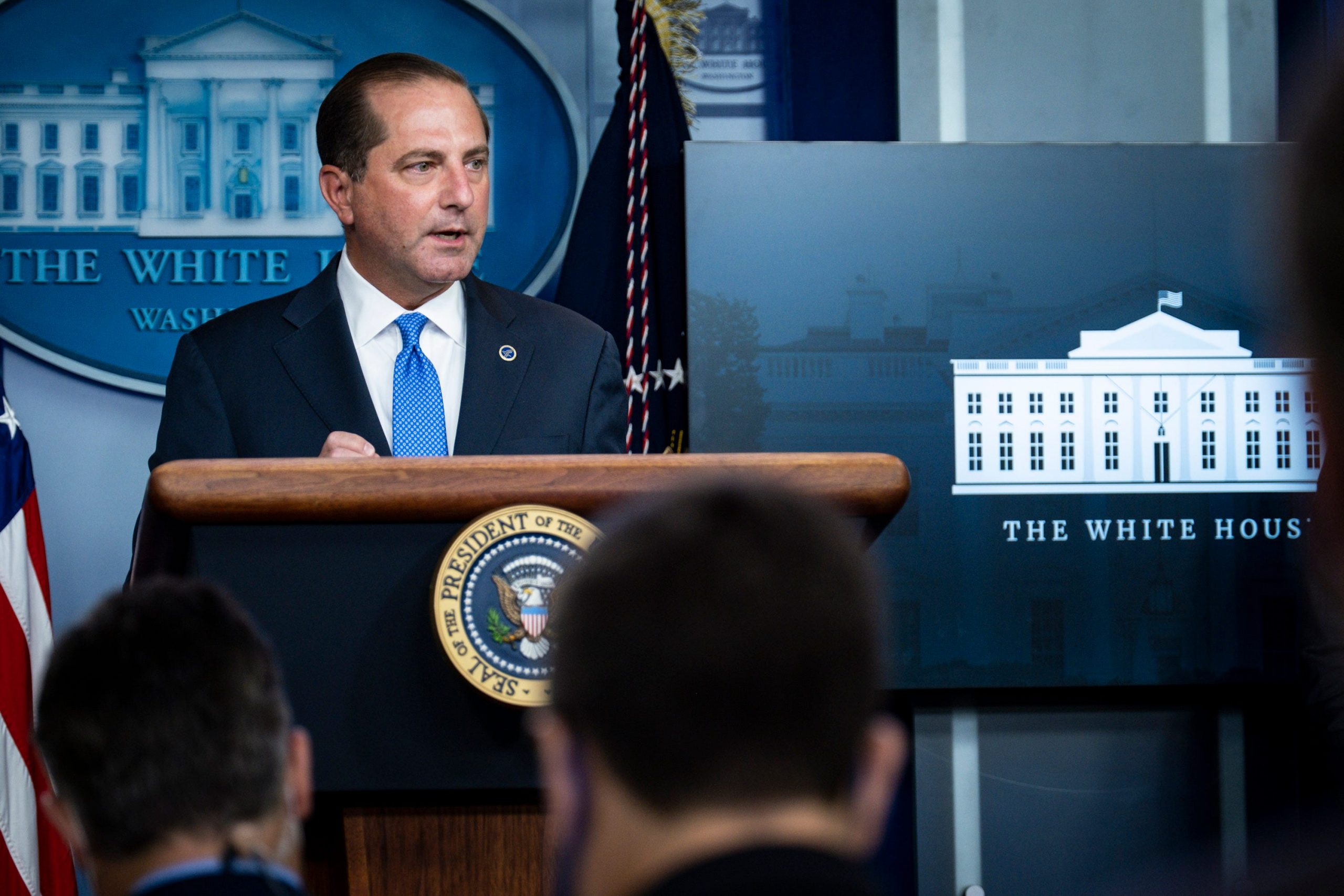
Pete Marovich/Getty Images
- Secretary of Health and Human Services Alex Azar said Tuesday “all Americans who would want to take a vaccine” should have access to a coronavirus vaccine by late March or early April.
- Vulnerable populations should be able to get the vaccine as early as December, with nursing home residents first in line followed by healthcare workers and first responders.
- The prediction follows Pfizer’s announcement Monday that initial results show its vaccine is 90% effective, though much remains unknown about its safety, durability, and
- Visit Business Insider’s homepage for more stories.
When pharmaceutical company Pfizer announced Monday its experimental coronavirus vaccine may be 90% effective, many questions remained, including when it may be available and for whom.
On Tuesday’s episode of the Today Show, Secretary of Health and Human Services Alex Azar addressed those questions, saying the general public should have access to the vaccine and potentially others, like one in development by Moderna, by the end of March and early April 2021.
The most vulnerable populations, including nursing home residents, should have access earlier, by end of December 2020, as Pfizer is preparing to deliver 20 million doses of the vaccine each month starting by the end of this month, Azar said.
Healthcare workers and first responders will be next in line, Azar predicted, and able to access to a vaccine by the end of January.
The secretary said the announcement, and overnight news that the FDA authorized Eli Lilly’s monoclonal antibody treatment bamlanivimab for emergency use, represent “incredible advances for human health this week.”
"It's just the fruits of Operation Warp Speed and America's biopharmaceutical industry leading the world once again," he said.
Azar's comments are in line with his projections a few weeks ago, but hold greater weight now that Pfizer's vaccine appears to work.
"We expect that we would have, by the end of this year, enough vaccine that is FDA-authorized to be able to vaccinate all of the most vulnerable individuals," he said October 21. "Then by the end of January, we expect we'd have enough to vaccinate all seniors, as well as our healthcare workers and first responders — and by the end of March to early April, enough vaccine for all Americans who would want to take a vaccine."
Pfizer's Monday announcement should be taken cautiously
Pfizer's vaccine, which is not yet FDA-approved, was developed in record time and its trial remains underway. Initial findings that the vaccine is 90% effective may shift as more study participants are analyzed.
It's unclear if the vaccine protects against both mild and severe cases, prevents disease transmission, or lowers the risk of hospitalization and death.
Researchers also don't yet know what the vaccine's potential short- and long-term side effects may be, or how long the doses may be effective at shielding people from the illness.
Still, Monday's announcement was a highly encouraging step in the right direction, health leaders said. The World Health Organization's director general called it an "unprecedented scientific innovation" and infectious-disease expert Dr. Anthony Fauci said its reported efficacy rate is "remarkable."

